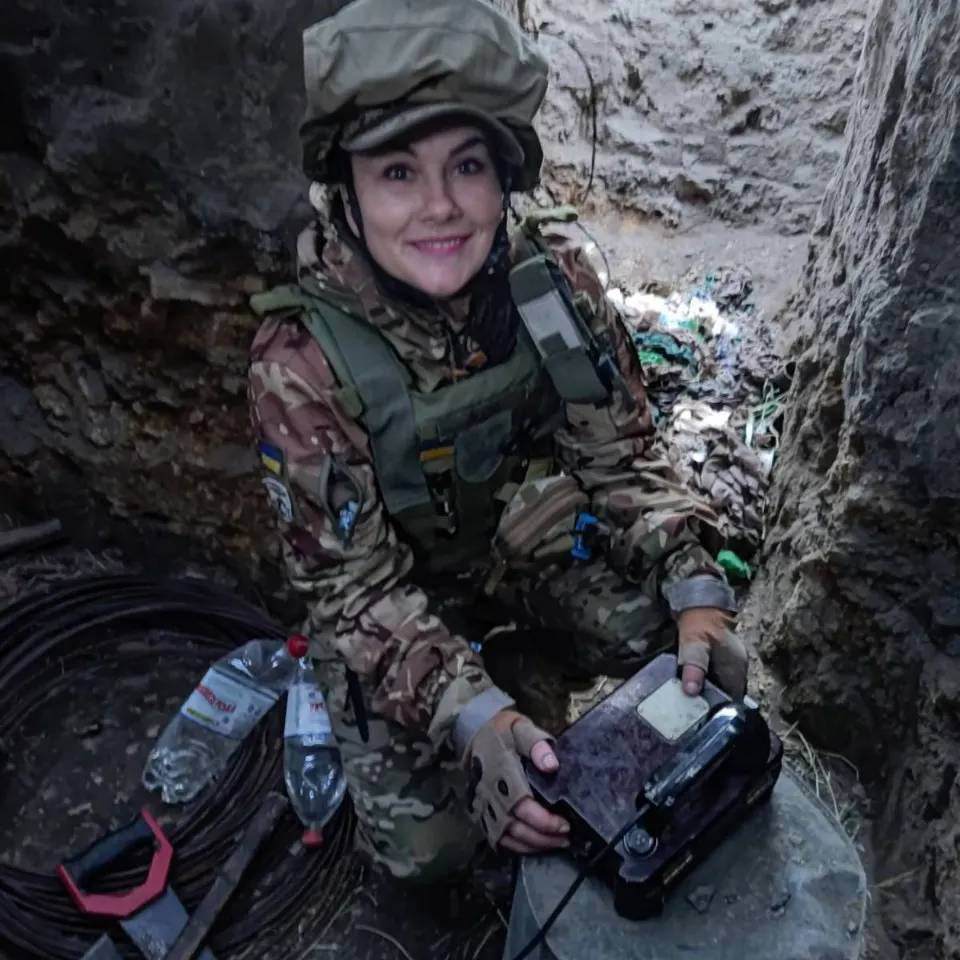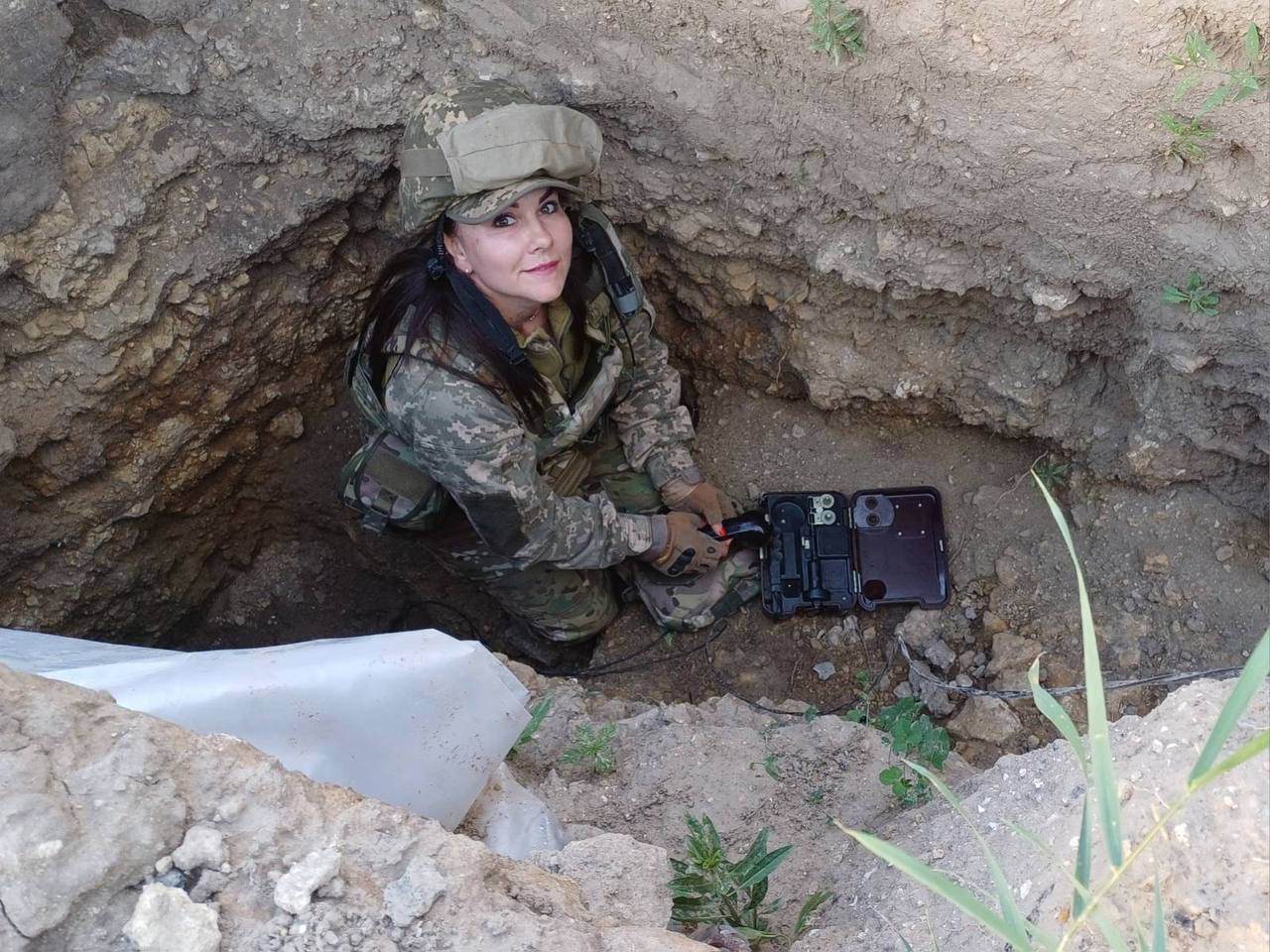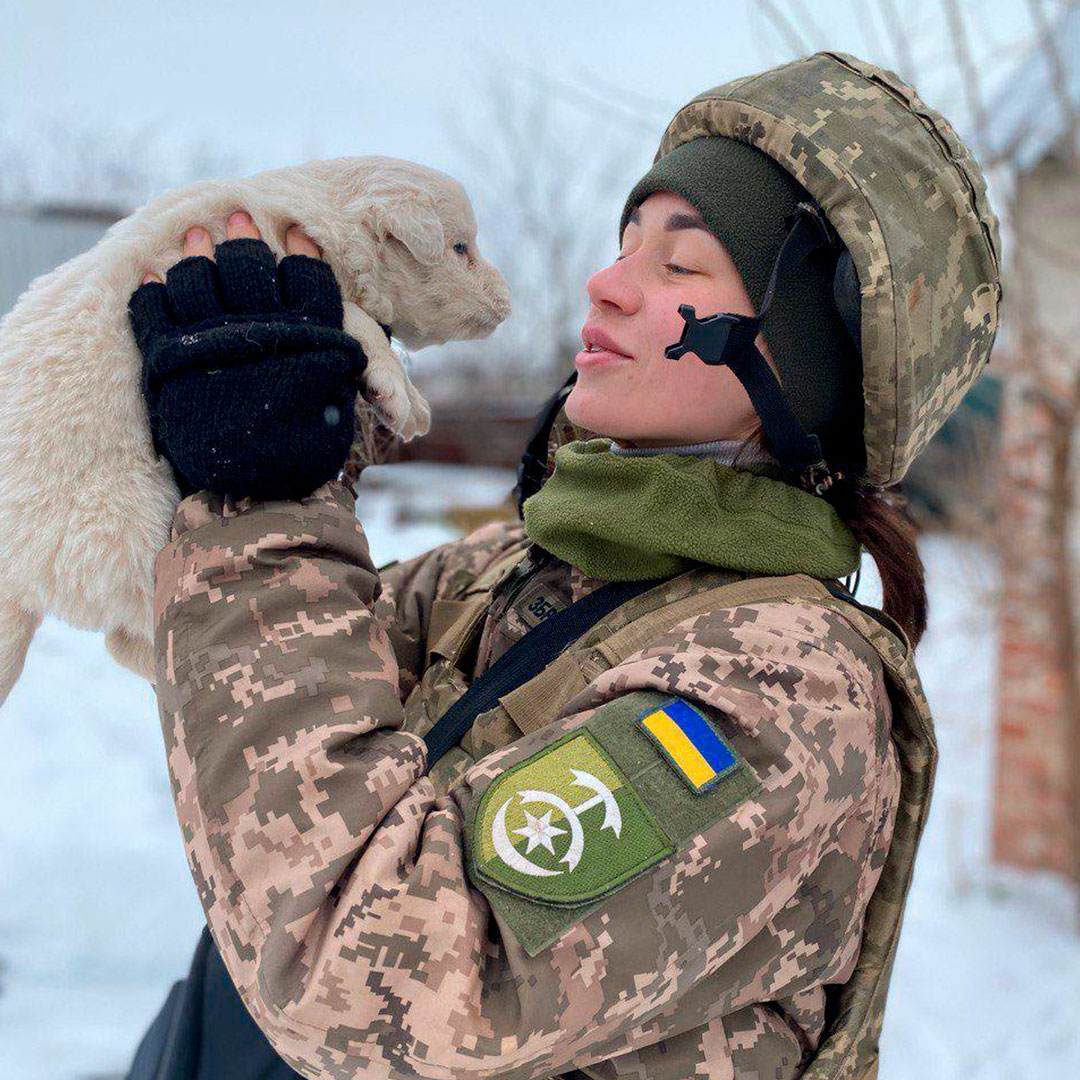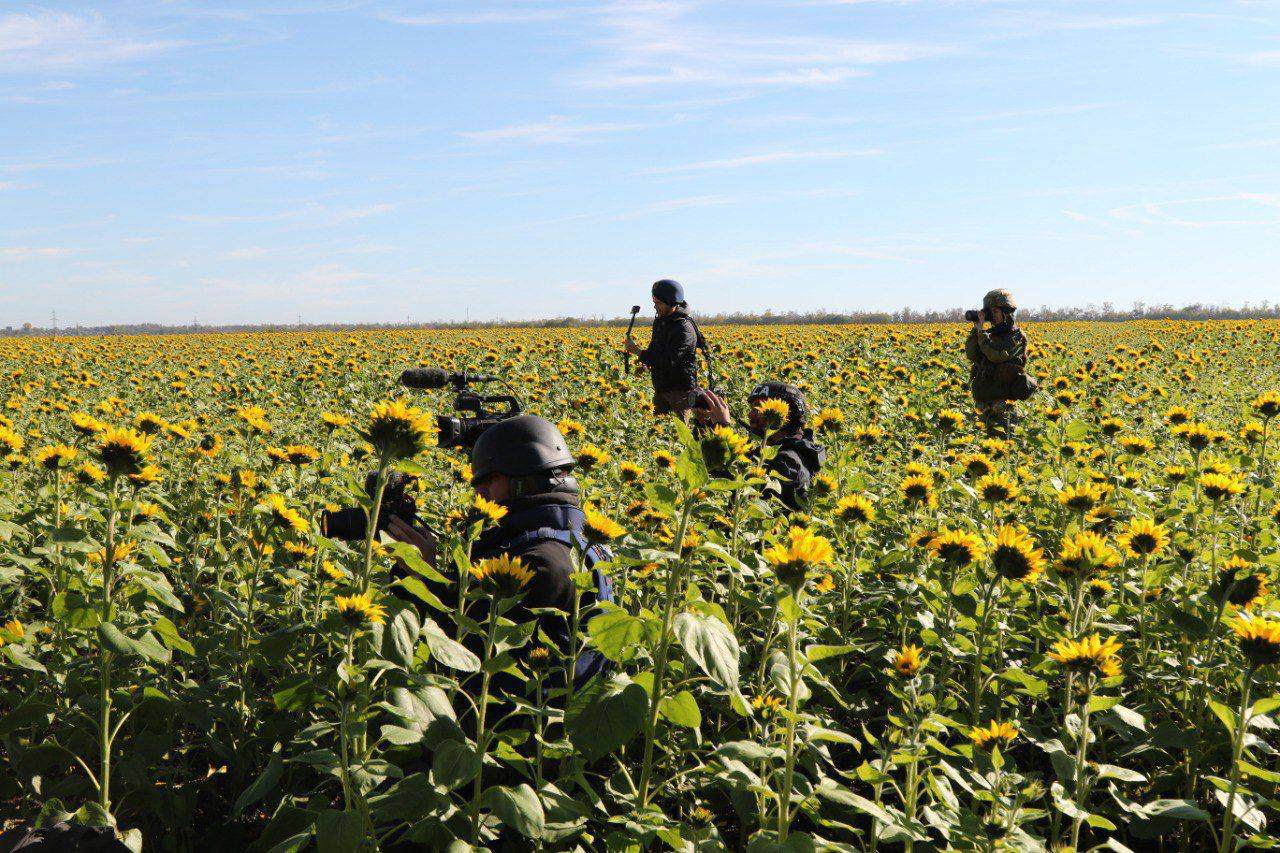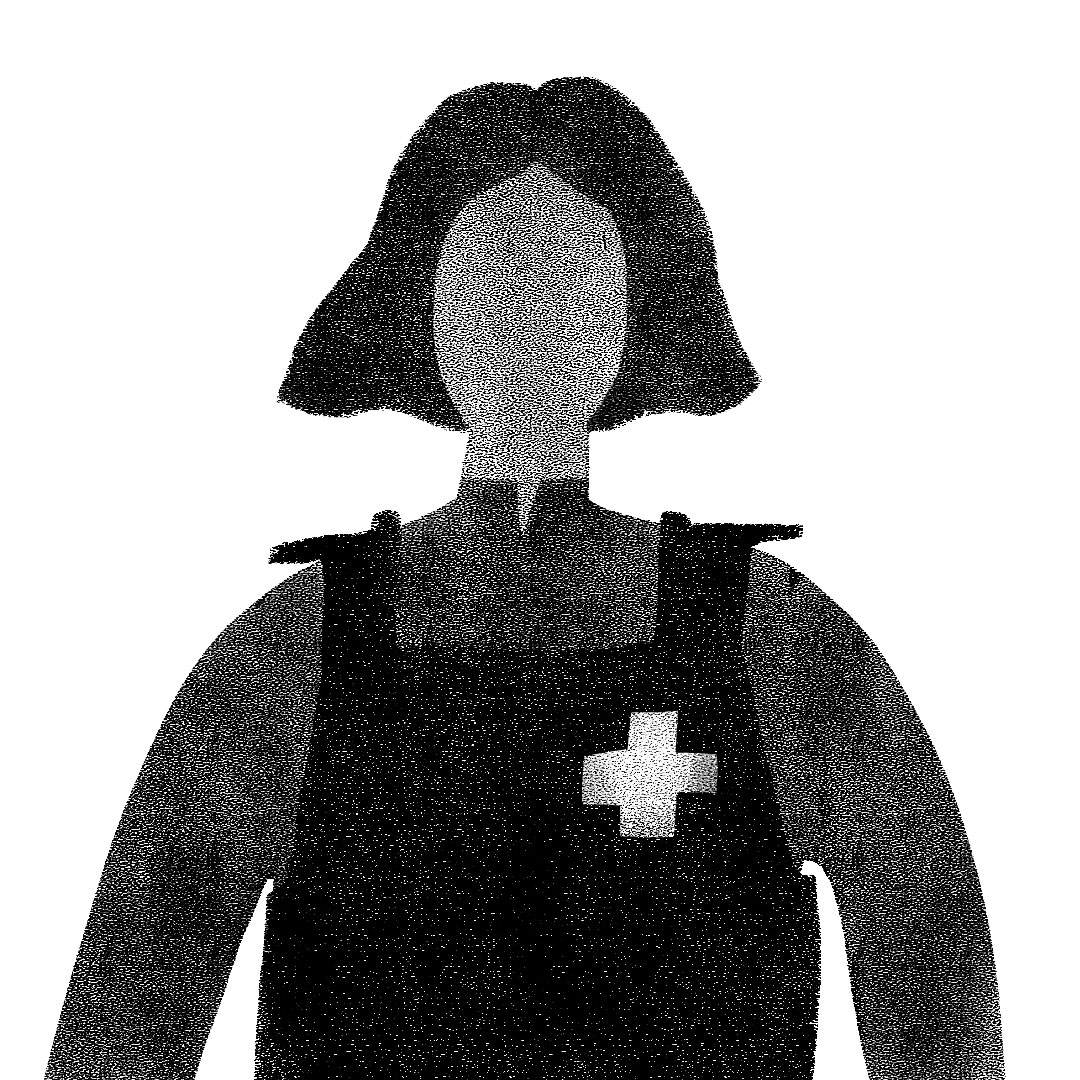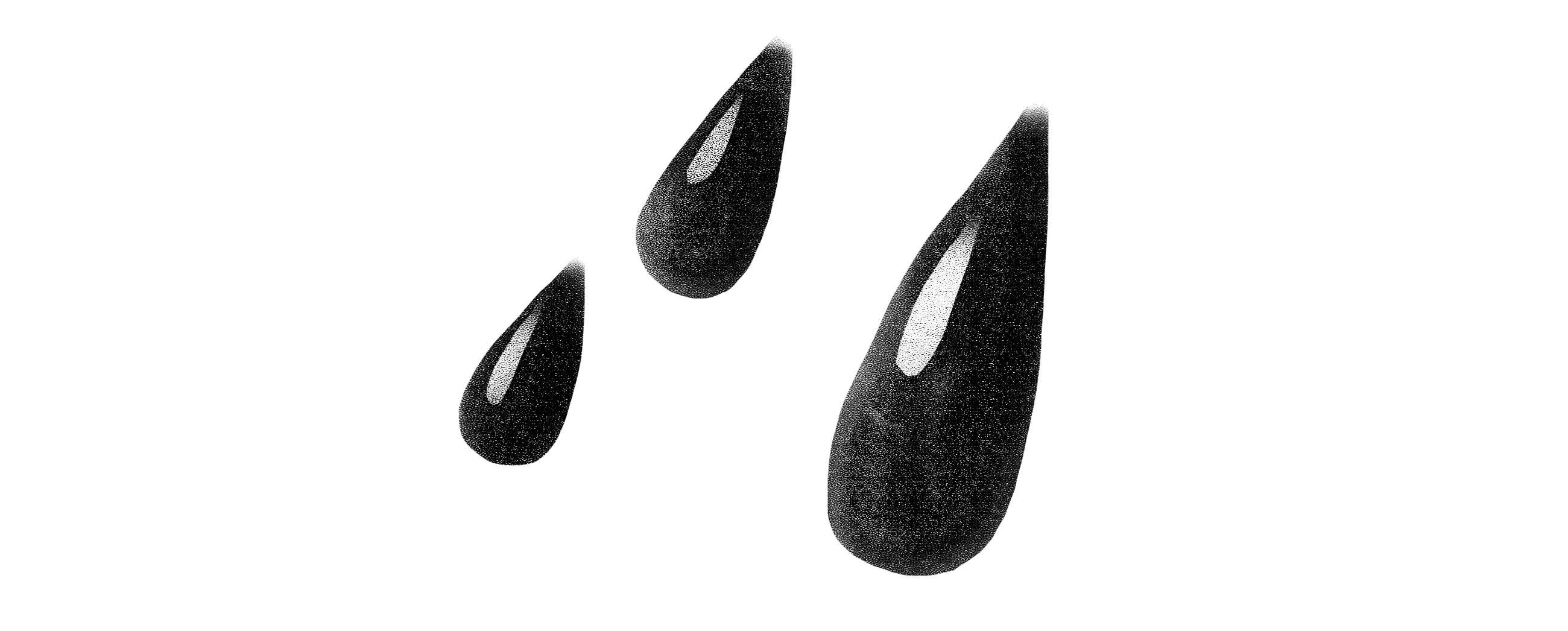“I Was Torn Between the Role of a Mother and a Citizen of Ukraine”: Three Stories of Servicewomen About Their Worst Day at the Front
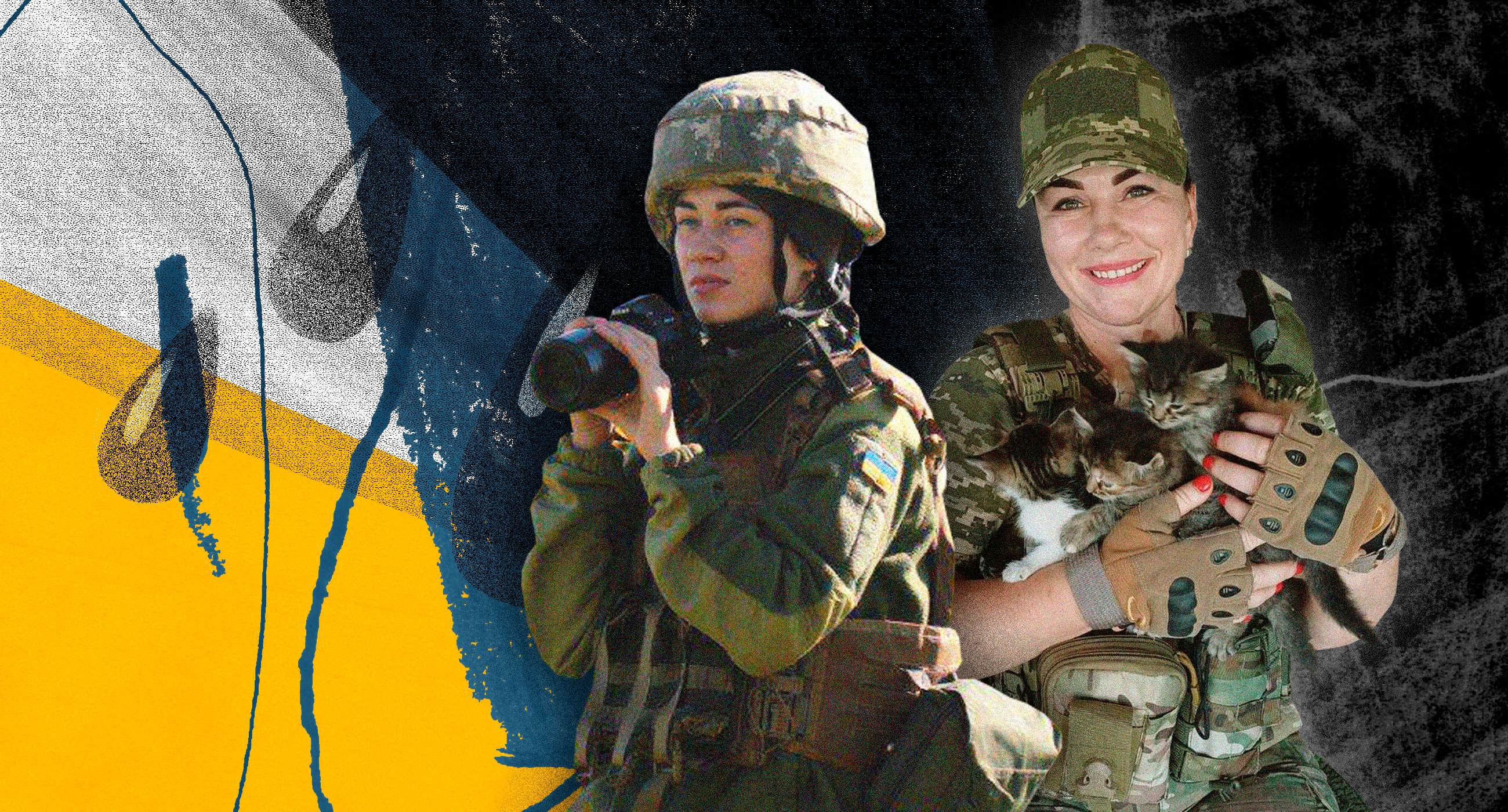
At least 60,500 women are currently serving in the Armed Forces of Ukraine — more than twice the number at the beginning of the war with Russia in 2014. Women hold various positions, risk their lives every day and save others. However, it wasn’t easy for each of them to reach the frontline; some faced mistrust from higher ranks, while others struggled to separate from their families. Zaborona journalist Polina Vernygor interviewed three members of Ukrainian Women Veteran Movement about their most challenging experiences during the war. Here are their stories.
“Mom is going to war”
Maryna Todorova, “Mala”, 126th Territorial Defense brigade, senior liaison-telephone operator of the company, 42 years old

Marina Todorova. Photo provided by the heroine
I have three children: the eldest is 23 years old, the second is 12, and the youngest is 6. When the full-scale war began, I immediately told my kids: ‘Mom is going to protect you, mom is going to war.’ I have quite a temper. To me, these explosions are horrifying, and they made me very angry. I took my two younger sons to my mother’s place in the country. When I returned two days later, there were no more openings at the military recruitment offices. I had to travel to Odessa for training. After that, I joined the 126th Territorial Defense Brigade.
I started my service in March, and by March 20th, I was already stationed at the checkpoint. The men around me immediately understood that I couldn’t be messed with. Anyone who attempted aggression or made inappropriate jokes received a sharp response. That’s why I never had any issues with my comrades based on my gender.
There were civilian men, although I wouldn’t even call them men — it’s a sensitive topic for me. They would ask, ‘What are you doing out there?’ And I would say, ‘Well, I’m protecting you, you numskull. You, the couch army, you. You didn’t go, did you? You’re just lounging around acting concerned about Ukraine!’
I have a dangerous job: day or night, shelling — I always have to restore communication. Until February 24th, I had nothing to do with that. I was involved in wholesale trading and couldn’t even imagine myself with wires, pliers. But now, I’m on close terms with this equipment.

Marina Todorova. Photo provided by the heroine
A female military service member must have a strong character. I’ll say it upfront: if you’re not mentally prepared, this isn’t the place for you. For me, the most difficult moment was when the first comrades died. Before that, I pondered how I would react to such a situation, expecting I would scream. But there was no hysteria — just shock.
We were in Kherson Region at the time, standing in positions when the Grad shelling started. I was a little further from the front line, but when I heard the shelling, I ran to my people. I immediately saw one of my brothers without a head and an arm. Two more were injured — one died on the way to the hospital.
I didn’t want to scream. It was unbearably painful.
Another difficult day was on Easter — my eldest son got injured in Bakhmut while carrying wounded colleagues. A shell hit, and he managed to jump out of the window, injuring his leg. His comrades called me and told me he was in the hospital. They said he saved the lives of eight comrades, and thanked me for raising such a brave and strong son. After treatment, he returned to Bakhmut.
This experience changes you a lot — I am already a different person. I see everything with completely different eyes. The pre-war Marina is gone. There is ‘Mala’ instead.
“If my task is to die, I accept it”
Kateryna Myronchuk, 30th OMBr, public relations officer, 26 years old

Kateryna Myronchuk. Photo provided by the heroine
I started treading the path to military enlistment offices as early as 2015 — many acquaintances of mine volunteered back then. The situation was unclear: the first wounded, the first casualties, everyone had to contribute to the preservation of the state’s integrity. And since I’m already a conscious adult who can do something, I must help my country.
People always said: ‘It’s not the place for a woman. What are you going to do there? You don’t need that.’ Often they said that at most I would be a cook. Later, I heard: ‘If you at least had an officer’s rank, we could come up with something.’ I replied, ‘Well, no problem, next time I’ll come to you with an officer’s rank.’ The ‘distinguished’ major laughed in my face. I kept my promise [went to study at the military department and received a rank], but they still found reasons to reject me.
In 2021, I finally managed to break through this barrier: the 30th Separate Mechanized Brigade named after Prince Konstantin Ostrozhsky provided me with an opportunity to serve. The brigade had already been deployed to the combat zone for rotation, so I immediately went to the East. Back then, I didn’t quite understand how things were organized in the combat zone; I learned by doing.
Later, I was offered the position of Public Relations Officer. Natalia Vasylivna headed the department — she lives and breathes the military: understands everything, and fears nothing. She toughened me up a bit. I was in Bakhmut with her when the full-scale invasion began. We exchanged glances, like, ‘What are we doing?’ — ‘What else? We continue to fulfill our duty, remain faithful to our oath, come what may, because the world must know the truth about the war in Ukraine.’
I had a discussion with a civilian acquaintance who believed that women in the army were used for sex or relationships. I said, ‘No officer or soldier allowed even a silly joke like that.’ And he said, ‘Probably, you’re just not attractive enough.’ The matter was closed.

Photo provided by the heroine
In February 2022, we were on positions along the Svitlodarsk curve, where we were heavily shelled even before the full-scale invasion. The first casualty was a scout from our brigade on February 19th. A day before the invasion, I had several groups of journalists; I took them to a unit in Zaitseve, near Horlivka. Just as we arrived, there was a powerful artillery barrage, heavy-caliber shells falling all around. I didn’t understand what was happening — it was the first time for me. Previously, the enemy would fire with a DShK heavy machine gun, perhaps, a sniper would attempt but miss. But this time, we were hit hard.
We dived into the bunker, and I got scared. What if something happens to our journalists — I’m the one responsible for them. And the journalists were cool and strong, by that time they had all been working on the front lines for eight years, they knew what to do and wanted to go out — they needed to cover the shelling. But I wouldn’t let them. There was such an adrenaline rush — it went through every vein. Later, looking at the footage from that day, it was funny how my voice was trembling. And I thought I was so brave.
But the worst day was probably February 24th. In January, I brought a small white fluffy dog from the positions. At that time, I was living in a separate room with two other women. And all night on February 24th, he was yelping, crying, bothering everyone: he scattered everything he could, tore up cardboard boxes — it was just awful. I couldn’t understand why he was behaving like that, everything had been fine before. And at half past five in the morning, a logistics officer knocked on the door and said, “Girls, get up, it’s begun.” The dog must have sensed something.
For us, that day was minimal in terms of events but maximal in terms of emotions. One woman had a hysterical episode for several days. I didn’t understand why, but later I was told that she had three children at home — the oldest had just started school. Her husband also serves in our brigade. We have very strong women; they managed to overcome themselves, solved all family matters over the phone, being who-knows-where, while fulfilling their duties in the service. It seemed to me that their only trouble was worrying about their little ones. In other words, they can handle everything, manage anything, endure everything. Their only concern is for their children.
I had anxiety too, but back then, I thought about the fact that we would all die — just some earlier and some later. And if my task is to die there, I accept it.
Later there was a situation: we were leading journalists when mortar shelling began. The field was flat — only occasional craters from the shelling. It flies by, whistling — meaning it’s not aimed at us. We confidently keep running forward when suddenly a shell falls less than 50 meters away. I don’t know how it happened, but everything went up — maybe the ground was softer there, maybe fate saved us. But when I returned to the headquarters, I immediately called my mother and told her what documents she needed in case I died. Mom cried and protested for a while, but there was no avoiding that. Being in the military is a conscious choice. We are here to live in a free country without the chains of the occupier.
“On the fourth day, tears appeared. On the tenth, they found the body”
Oksana “Oxygen”, National Guard of Ukraine special unit, tactical medicine training officer, 40 years old

Illustration: Maria Petrova / Zaborona
Since 2014, I have been volunteering while working — I had my own business. But when the full-scale thing began, probably like most people, I realized that I needed to go out there and help. As a civilian, I could only join in the medical field — my education allowed for that. I have underage children; I took them abroad and lived with them there for six months. Then I realized that my friend could take care of them, and they were managing fine on their own. So in September, I came back to Ukraine and was conscripted on November 17th, 2022.
I knew my potential, I knew I could do something useful. But the decision [to go to the front] took a while to make. My therapist supported me, and together we prepared the children for it. I was torn between the role of a mother and a Ukrainian citizen who should be at war and do everything possible to prevent a greater catastrophe. Now, I am in a resourceful state because I feel that I’m doing everything right, that I’m where I’m needed.
From my sisters in other brigades, I heard about the attitude of higher ranks, like, “You’re a woman, get out of here, sit down, and be quiet.” But personally, I haven’t had such an experience. My comrades are always supportive of me. I do what I can to support them — sometimes, I cook cherry dumplings or make green borscht. They appreciate it, but even without women, they manage very well on the front.
They protect me. When a tragedy occurs, the guys bring the wounded to us. I’ve asked a few times to let me go to the positions, but a glance from the commander was enough for me not to discuss it further. They understand that I still lack the experience and training. However, there are women with assault brigades or in groups, but they have been working with the guys for a year and a half already.
There are physically demanding days when there are many wounded, and everything needs to be done very quickly. Unpleasant images are constantly before your eyes: amputations, massive bleeding. I understood where I was going and what it would be like. But sometimes you don’t even have time to catch your breath — it’s physically tough.
The most emotionally challenging day was when I lost contact with a friend. His commander called and said that the group had walked into an ambush. When such a situation occurs, you hear shouts and chaos over the radio; you don’t understand who has been wounded or who went where — there’s no communication, and the information is uncertain. More specifics start coming in after an hour; they announce the names of the wounded. But where is he? No information.
Until four in the morning, I was in contact; every hour, I updated our private chat and tried to reach those who were with him. He’s a professional; he’ll show up. By morning, I realized: the information was true — he was not there. How can that be? Where is he? He couldn’t have vanished into thin air. I sent him messages and voices — he wasn’t online. With each passing day, hope diminished. I felt like I was suffocating, as if everything inside me was burning. Every morning, I looked at my phone, hoping for a message either from him or the commander. If it’s from him, everything’s fine. If it’s from the commander, it means they found the body.
On the fourth day, tears appeared. On the tenth day, a message came from the commander.

Illustration: Maria Petrova / Zaborona
I called my brothers, they shouted: “How could you think it was him? He’s alive!” They were in despair and denied his death because he was a close person to all of us. We went for identification and confirmed it based on his tattoos. We are still waiting for the examination, but now we have calmed down a bit and accepted it. We are just waiting for the burial.
He was a true professional in his field, very experienced. He taught many about military affairs, and I realize what a loss this is, both for our unit and Ukraine. For him, the main value in the war was to die as a hero, saving his guys if such a situation arose. And that’s how he died.
At first, I thought I wouldn’t get close with anyone anymore — if I lost someone else, I wouldn’t be able to handle it. They are like children to me. But then I understood that we don’t have another life right now, and we can’t keep our distance. Losses will happen; not everyone will return from the war. But if I do everything within my power, they will survive.

